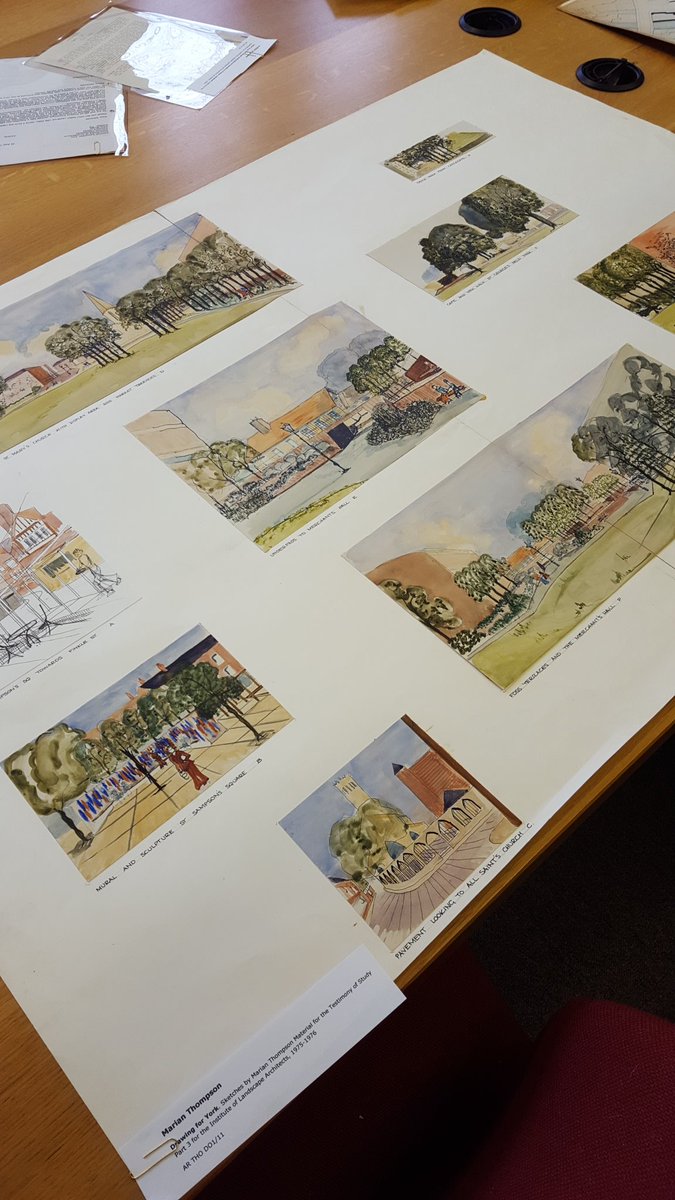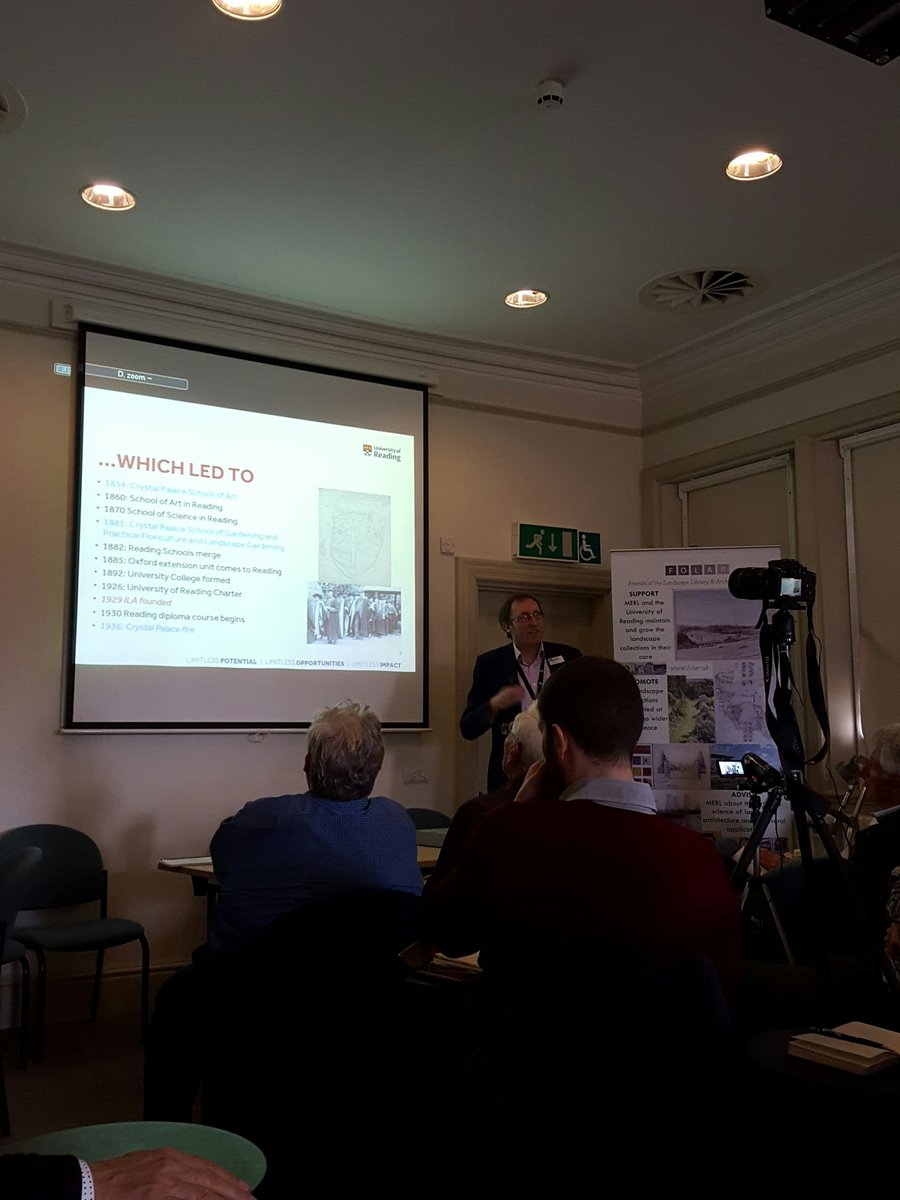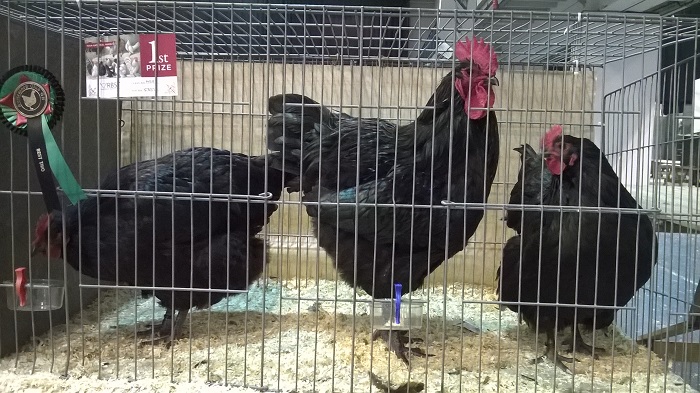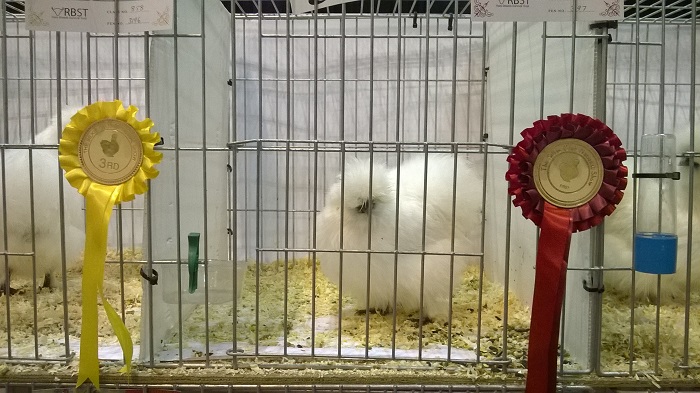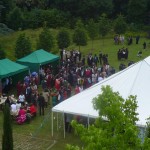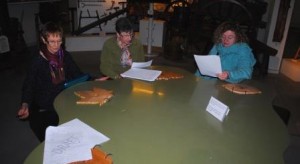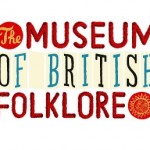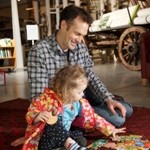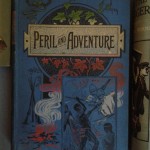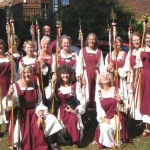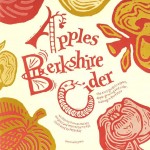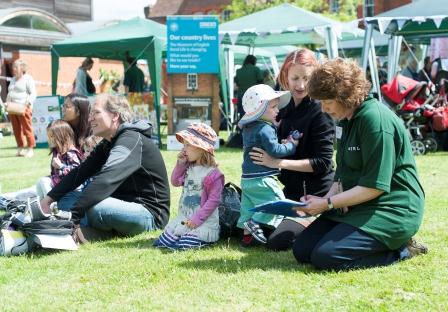On Saturday 1 April 2017 MERL hosted a FOLAR (Friends of the Landscape Library and Archive at Reading) study day on the topic of: ‘Landscape Architecture and Management Education in the UK: past present and future’.
The day included talks and a pop up display of archive and library material from our Landscape Institute collections. FOLAR Chair, Penny Beckett, gives an account of the event:
The best discussion we’ve had about UK landscape architecture education in a long while
So said one of those who attended the recent seminar at MERL organised by FOLAR. Chaired by John Stuart-Murray (University of Edinburgh), this half day event had 4 speakers: Guy Baxter, the University Archivist, who spoke about the first English university course in Landscape Architecture set up at Reading in the 1930s; Jan Woudstra (University of Sheffield) on the development of English Landscape Architecture Education and after the tea break, former Reading senior lecturer Richard Bisgrove who spoke about the Landscape Management degree at Reading which ran from 1986 to 2009.
The last speaker was Robert Holden (former University of Greenwich), who gave us much food for thought about the current state of landscape education in the UK. It appears to be in decline, while at the same time the demand for qualified landscape architects by employers outstrips the supply of home grown graduates. Much of the question and answer session after Robert’s talk explored why this might be the case when the situation seems very different in both the USA and other European countries. Earlier, Jan Woudstra had suggested possible reasons, citing the encroachment of ‘new’ course topics, such as ‘landscape urbanism’ into a subject area once occupied by landscape architecture alone. He mentioned too the lack of landscape research in the UK (though Sheffield boasts a healthy 45 PhD students!); the difficulty too of conveying a consistent image to the wider public, prospective students and their parents about what the profession landscape architecture is all about. The irony is that the work of landscape professionals lies at the very heart of the current political agenda, while landscape architects and managers have long been used to the interdisciplinary working that is now essential in our 21st century world.
Guy Baxter’s talk made interesting links between the pre-war students at Reading and some of the members of the fledgling Institute of Landscape Architects (ILA) they helped to establish. The Institute’s archives deposited at MERL reveal the connections. The first ILA member, for example, ‘Member No. 1’ was Marjory Allen (Lady Allen of Hurtwood) the landscape architect who was an early advocate of the importance of providing for children’s play in our urban areas.
Richard Bisgrove described the genesis of the BSc (Hons) in Landscape Management course he set up at Reading in 1986. It ran successfully for many years, training students who then went into various branches of the landscape profession. Lecturers on the course included Tony Kendle who later went to the Eden Project and Ross Cameron who moved to the University of Sheffield.
One small downside of the day was that the full programme allowed little time to look at the wonderful display of archive material put out for us in MERL’s Reading Room. So to the MERL staff involved, can I offer both apologies as well as many thanks for helping to make such a thoroughly enjoyable and informative day. A video recording of the seminar itself will be posted on the FOLAR website shortly.
Penny Beckett, FOLAR Chair
You can find out more about our Landscape Institute collections, using our Reading Room, FOLAR or see tweets and Instagram posts from the event.


